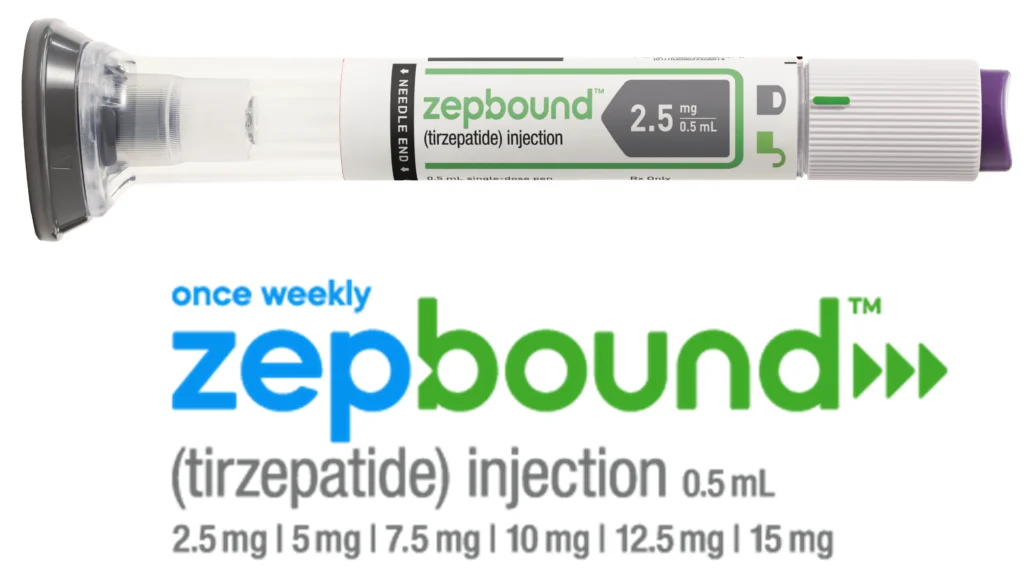
Obstructive Sleep Apnea (OSA), a common yet underdiagnosed condition affecting millions globally, has reached a turning point in its treatment landscape. The U.S. Food and Drug Administration (FDA) recently approved Zepbound (tirzepatide) as the first-ever drug specifically indicated for moderate to severe OSA in adults with obesity.
This groundbreaking approval offers new hope for patients who have long relied on continuous positive airway pressure (CPAP) devices or surgical interventions. The introduction of Zepbound adds an innovative dimension to the treatment landscape, offering a non-mechanical approach that could address some of the limitations of existing therapies.
Understanding OSA and Its Challenges
Obstructive Sleep Apnea occurs when the upper airway becomes partially or completely blocked during sleep, leading to disrupted breathing and reduced oxygen levels. This condition not only impairs sleep quality but also increases the risk of serious health issues such as hypertension, heart disease, and diabetes.
The traditional first-line treatment for OSA involves CPAP or BiPAP devices, which, despite their effectiveness, have poor compliance rates due to discomfort and inconvenience. Surgical options, such as uvulopalatopharyngoplasty (UPPP) and hypoglossal nerve stimulation, offer alternative pathways, especially for patients who find CPAP intolerable. While CPAP remains the gold standard in terms of symptom resolution, surgeries often have the advantage of higher patient compliance, albeit with varying success rates depending on individual anatomy and surgical technique.
Lifestyle changes like weight loss are also recommended but can be difficult to achieve for many patients.
What Is Zepbound?
Zepbound, developed by Eli Lilly, is an injectable medication initially created for managing type 2 diabetes and promoting weight loss in obese patients. It works by mimicking hormones that regulate appetite, helping patients achieve significant weight reduction. Given the strong link between obesity and OSA, weight loss is a key factor in improving symptoms, making Zepbound a logical step forward in OSA management.
Clinical Evidence Behind Approval
The FDA’s decision to approve Zepbound was based on two large, randomized, double-blind, placebo-controlled studies involving adults with moderate to severe OSA. While the studies primarily focused on the efficacy of Zepbound in symptom improvement, they also considered its role in patients who have undergone or are considering surgical treatments, providing a comprehensive view of its potential impact in the broader spectrum of OSA management. In these trials, participants treated with Zepbound experienced substantial improvements in their sleep apnea symptoms, including fewer episodes of airway obstruction and better sleep quality. These benefits were most pronounced in patients who achieved significant weight loss during the study period.
How Does Zepbound Work?
Zepbound acts on the body’s GLP-1 receptor to:
- Suppress appetite
- Slow gastric emptying
- Promote weight loss
By reducing body weight, it helps alleviate pressure on the upper airway, thus improving airflow during sleep. The FDA recommends using Zepbound in combination with a healthy diet and regular physical activity for optimal results.
Potential Side Effects and Limitations
While Zepbound offers a novel treatment pathway, it’s not without potential side effects. Commonly reported issues include nausea, diarrhea, vomiting, constipation, abdominal (stomach) discomfort and pain, injection site reactions, fatigue, hypersensitivity (allergic) reactions (typically fever and rash), burping, hair loss and gastroesophageal reflux disease. These symptoms typically subside as the body adjusts to the medication. Additionally, long-term safety data and its applicability across diverse patient populations will need further study.
Animal studies have shown that Zepbound causes thyroid C-cell tumors in rats. It is unknown whether Zepbound causes such tumors, including medullary thyroid cancer, in humans. Zepbound should not be used in patients with a personal or family history of medullary thyroid cancer or in patients with Multiple Endocrine Neoplasia syndrome type 2.
Zepbound is a Milestone in OSA Management
Zepbound’s approval marks a significant milestone in the management of OSA, especially for obese patients who struggle with CPAP intolerance. For healthcare providers, this drug offers an opportunity to personalize treatment plans, combining pharmacological therapy with lifestyle interventions for comprehensive care.
Availability and Future Outlook
Eli Lilly has announced plans to launch Zepbound under the brand name Mounjaro in India by 2025, pending regulatory approvals. With an estimated 10 million Indians affected by OSA, the drug’s entry into the market could transform how this condition is managed in the region.
The FDA’s approval of Zepbound is a game-changer for OSA treatment, providing a pharmacological option for a condition that has largely relied on mechanical or surgical interventions. As we await its broader rollout and real-world application, Zepbound represents a beacon of hope for millions struggling with the dual burden of obesity and sleep apnea. If you or a loved one suffers from OSA, consult a sleep specialist to explore this and other available treatments.